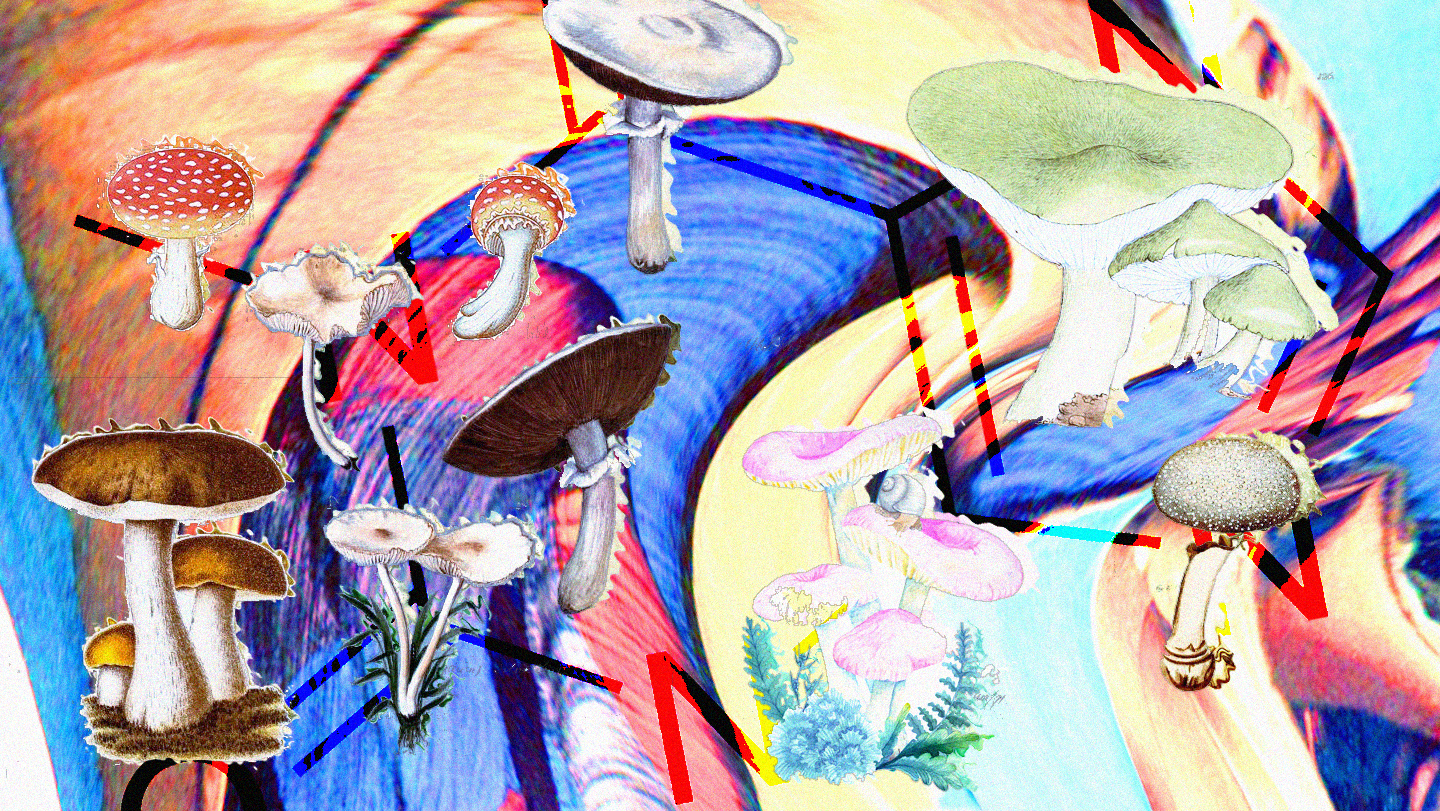Wellness products that take their inspiration from recreational drugs have been mainstream for a minute. CBD has saturated the market and is now a $5 billion industry worldwide. The introspection and boredom of lockdown caused an uptick in interest in psychedelics, as well as microdosing magic mushrooms and LSD (with 50% of new microdosers having started during the pandemic, according to one survey). So, it’s hardly surprising that mushroom supplements are now a fast growing industry too.
“I often say that microdosing is to psilocybin mushrooms as CBD is to cannabis,” says Madison Margolin, the co-founder and editorial director of DoubleBlind, a magazine that covers psychedelics. “A daily enhancement, or wellness tool, minus the high. By the same token, as the stigma around psilocybin falls away, these mushrooms too have acted as gateway fungi into the world of mushrooms, more broadly speaking, encouraging people to explore other types of mushrooms for various health-related reasons.”
‘Functional mushrooms’ such as certain strains of the cordyceps species (of which there are over 600 types) and lion’s mane, a woodland mushroom that grows in large white clumps, are said to have medicinal and wellbeing benefits, including increased focus, increased creative ‘flow state’ and improvements to energy. Research is ongoing, but academics are beginning to find links between regularly eating functional mushrooms and improved neurone health. One of the biggest differences between psilocybin and other mushrooms used to treat mental health, it seems, is the law.
Although scientific research into the benefits of psilocybin to treat conditions such as depression and PTSD have had remarkably promising results, the substance still isn’t enjoying the same legal relaxations as cannabis. LSD and magic mushrooms are both Class A drugs, and studies using them within research institutes and universities are closely regulated. In the UK and elsewhere across Europe, loopholes that previously allowed recreational mushroom users to legally purchase psilocybin-containing truffles — packaged in small quantities, as well as kits to grow mushrooms themselves at home — have been rapidly closing. Many microdosers are seeking alternative legal options.
“I used to microdose psilocybin truffles that I could buy fairly easily online,” says Nikki*, who uses microdosing to help her focus on her work as a coder. “But the sites started to restrict sales to the UK and after a while it was impossible to get them. I started researching functional mushrooms and the cordyceps fungus, and it seemed like it had a lot of the same effects. I used to be a big energy drink person. But, you know, I’m in my 30s now and those things are so bad for you. I found with microdosing I’d be able to focus, but wouldn’t get the jitteriness or the anxiety that caffeine often gives me.”
This ideal combo or laser focus without the coffee jitters is one of the main draws of mushroom supplements. Brands are making big claims, and products are diverse — including capsules, teas, gummies and milkshakes. Retailer Mushrooms4Life claim their Reishi mushroom capsule supplement “calms the ‘Shen’ spirit, restores energy and nourishes the blood”, while Spacegoods’ chocolate-flavoured mushroom drink Rainbow Dust promises ‘focus, energy and zen-like calm’ with no crash.
As a psilocybin microdoser (who has encountered first hand the difficulty in trying to source magic mushrooms in the UK) and a too-regular coffee drinker, I was keen to try an alternative. Mojo-Macro, a functional mushroom gummy, whose tagline is “a microdose for modern life”, contains a combination of two cordyceps strains, as well as lion’s mane and other active ingredients, including ginseng and L-Theanine. “What’s unique about Mojo Microdose’s formulation is the synergistic combination of all nootropics together,” says Stefany Nieto, COO & Co-Founder of Gwella Mushrooms. “They wouldn’t have the same effect if they were taken at the same dosage levels alone.”
The company only sell products that are 100% legal in the UK and US (some countries including France and Italy have stricter restrictions on functional mushrooms in food), but Stefany believes that legal relaxations around psilocybin are on the horizon. “We hope one day to be able to move forward with a psilocybin-inclusive Mojo, as the formulation was also designed to work synergistically with that compound and effects. With more reports of studies sharing the safety and efficacy of this plant medicine, and jurisdictions working to establish safety profiles and protocols, we see this as a soon-to-be reality.”
After a couple of days of eating one gummy a day, in the morning before breakfast as I would do with psilocybin, I hadn’t noticed much difference, and was still reliant on a cup of coffee to get my brain working optimally. But the company recommends taking the gummies on a “five days on, five days off” cycle. In regards to dosage, the directions on the pack say “Everybody is different, so start slow and see what works for you. For your first dose, take one chew and slowly increase until you’ve reached your desired effect.”
Nikki says it took her a while to find the right dose to mimic the effects she’d been enjoying before with psilocybin. “I take two cordyceps pills a day because I found one didn’t do much. But when I doubled up, I got into more of a flow state, not as strong as with psilocybin, but enough that it’s helpful. And my caffeine intake has gone way down, which is a plus.”
As with psilocybin microdosing, there’s a lot of trial and error. Functional mushrooms don’t seem to be the quick fix that caffeine is. But with new products coming onto the market all the time, and more people investigating the benefits of mushrooms, it seems like a little bit of experimentation and patience might be all that is required.
*Names have been changed for subjects to remain anonymous
Follow i-D on Instagram and TikTok for more on psychedelics.



